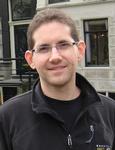Cited By
View all- Kurashige CJi RGiridharan ABarbone MNoor DItzhaky SJhala RPolikarpova N(2024)CCLemma: E-Graph Guided Lemma Discovery for Inductive Equational ProofsProceedings of the ACM on Programming Languages10.1145/36746538:ICFP(818-844)Online publication date: 15-Aug-2024
- Murali APeña LJhala RMadhusudan P(2023)Complete First-Order Reasoning for Properties of Functional ProgramsProceedings of the ACM on Programming Languages10.1145/36228357:OOPSLA2(1063-1092)Online publication date: 16-Oct-2023


